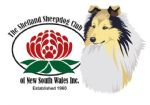Breed Information
Sheltie Fact File:
Information for Prospective Sheltie Owners
Background: The Sheltie is a small, long haired working dog of "great beauty," originally bred to herd sheep in the rugged terrain of the Shetland Islands. Their appearance resembles that of a small Rough Collie (a breed made popular by the Lassie films), but are indeed their own individual breed and possess features which distinguish them from their larger relatives apart from their size. They come in a variety of colours (as shown above).
Average Lifespan: Shelties usually live between 12 to 16 years of age.
Size: Shelties can be classified as a small dog. The average height of a Sheltie at the withers ranges between 14 to 15 inches. Average weight is between 6 to 10 kgs, depending of course on individual size.
Temperament & Trainability: The Australian Breed Standard summarises the Sheltie temperament as "Affectionate and responsive to his owner, reserved towards strangers, never nervous." Shelties are hardy, durable little sheepdogs who thrive on attention and praise. They are a gentle dog, making them great companions for children and adults alike. Being a working dog they are quite active, however because of their smaller size will suit the average suburban-size backyard whilst also enjoying walks or excursions. They also make superb house pets, and are very adaptable. Shelties possess a keen intelligence and aptitude to training, which makes them suitable for many performance disciplines, with breed representatives performing at the highest levels of Obedience, Agility, Jumping, Flyball, Herding and many other dog-sports activities. Their easy-going nature importantly makes great companions for other pets. As with all dogs, socialisation and training from a young age is highly recommended.
Maintenance: The Sheltie is a double coated breed (that means they possess a harsh, longer outer coat with a soft, dense undercoat) which was to be durable and weather resistant whilst working stock on the Shetland Isles. Whilst regular maintenance is highly recommended, this is not as much work as may first be assumed. Most breeders will recommend a thorough 10-minute brushing about once a week to keep their lovely coat free from knots and tangles, with particular attention paid to behind the ears, legs and on the stomach. Regular baths will also help keep the coat in good condition. Shelties will shed their undercoat every six months or so.
Health: Shelties are a primarily healthy breed of dog, with only a few known congenital conditions. However, as with all animals (and humans), sometimes mother nature has her own ideas despite the best-laid plans. Some shelties may be affected by an eye condition called Collie Eye Anomaly (CEA), the mildest form of which is Choroidal Hyperplasia (CH). CH is non-progressive and non-life threatening. Modern science now means that breeders can have dogs tested at a young age to determine whether or not they are affected, and to what extent, before they enter their new homes. To this end breeders are striving to decrease the incidence of such eye conditions in the Shetland Sheepdog through careful breeding plans, and by supporting further veterinary research. The impact CEA may have on an affected dog varies, and dogs mildly affected with CEA/CH will have no impairment to vision and consequently to their ability to lead long, healthy and fulfilling lives. For more information it is best to talk to an experienced breeder or vet.
Suitability: A Sheltie will suit almost any family or home situation which can give them the love and attention that they deserve. Their size makes them suitable to many families, and their gentle, intelligent and affectionate nature also makes them loyal and endearing pets.
Availability: The Club recommends that you purchase your Sheltie from a reputable breeder, please visst our breeder's links page. Refer to our Rescue page for information regarding Shelties looking for new homes, both puppies and adults.
Some useful questions to ask when buying a puppy:
-
Has the puppy been vaccinated and regularly wormed?
-
Has the puppy been microchipped?
-
Has the puppy had its eyes tested by an opthamologist?
-
Is the pup registered with the Dogs NSW , and at what level of Registration? What does the level of Registration mean?
-
Where is the puppy used to sleeping and what training has the puppy had?
-
What is the puppy's current diet and what is a suggested feeding program?
-
What is the temperament of the pup’s parents? Can we meet them? Of course it is rare for a breeder to own both parents but it should be possible to view the dam.
